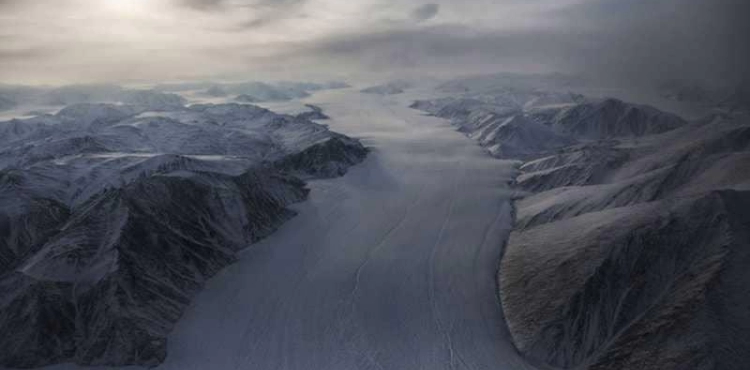Washington _ Agencies
European scientists have reached a "revolutionary solution", saying it limits the problem of the accelerating melting of polar ice, which can lead to terrifying scenarios, such as the sinking of entire coastal cities due to global warming.
The construction of rocky walls on the ocean floor would be a temporary solution that would help maintain the right level of ice to avoid the rapid catastrophic consequences of the land due to rising temperatures, the British Daily Mail reported Friday.
These walls will limit the speed at which snow bases melt in the depths of the ocean. The constant rise in the Earth´s temperature, at its current rates, has reduced the Arctic ice area to 33 Centitra a year, which means more than 4 billion and a half billion tons of ice.
The melting of ice starts from the lower glaciers, so the idea of walls, which are formed of rocks and dust, will stand in the face of warm surface water caused by high temperatures.
The construction of these walls requires tons of rocks and dust, in an effort to ensure a reduction in the speed of melting, which is considered as artificial thermal insulation.
A number of European scientists have expressed optimism about the study, especially as it promises to write off terrifying scenarios such as sinking coastal cities from impending threat lists.
The researchers conducted computer experiments simulating the Antarctic glacier, which is slightly smaller than that of Britain, and is believed to be melting rapidly.
The simulation revealed that isolating the river through walls up to 300 meters in length could reduce by 30 percent the melting of the ice for the foreseeable future.
Rather than attempting to bring about a major change in climate, researchers have begun advocating a more nuanced approach that could reduce the adverse consequences of climate change.
John Moore, a university professor who is involved in the study, said a change in the seabed near glaciers would prevent her from melting further.
He noted the importance of the study, which would have an impact on millions of people around the world, especially those living in coastal areas.












